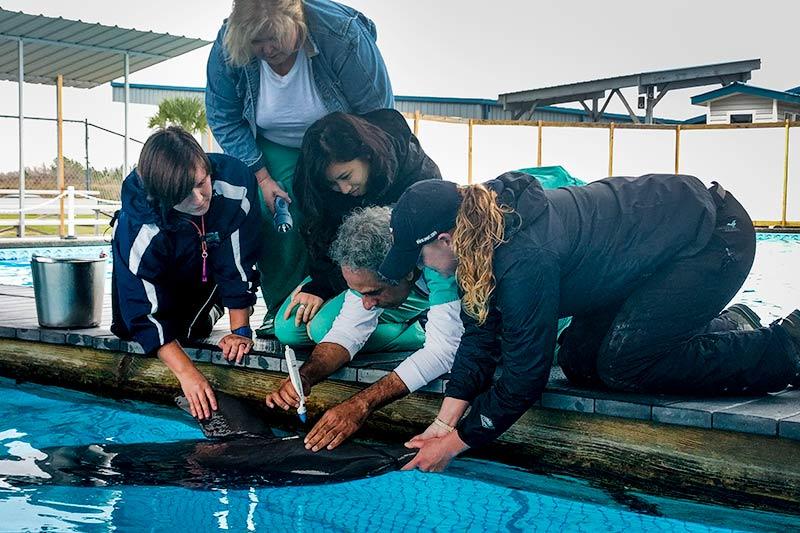‘We’re more alike than you think’
Humans and dolphins have a lot in common, and Dr. Ramesh Ayyala, a professor of ophthalmology at Tulane University, plans to use those similarities to improve the treatment of eye infections in both.
Ayyala was asked by Moby Solangi, executive director of the Institute for Marine Mammal Studies in Gulfport, Mississippi, to assist with the treatment of recurring eye infections in the facility’s dolphins and sea lions. During Ayyala’s recent visit to the institute, the problem became clear.
“If you treat them with antibiotic drops, the minute they go in the water the drop gets washed out,” said Ayyala. “That will not take care of the issue.”
Armed with his expertise on the treatment of human eye conditions, Ayyala used existing research on marine mammals to compare the anatomy of the human eye and tear ducts with those of dolphins. The greatest hurdle, he said, is that most of the literature is based on the examination of deceased animals as opposed to those that are alive and actively swimming in water.
“Eye infections are a major problem for these animals because of the environment in which they live,” said Ayyala, who adds that the health of dolphins is often an indicator of problems related to pollution or oil spills in the Gulf of Mexico.
Since the visit Ayyala has assembled a small research team consisting of Diane Blake, professor of biochemistry and molecular biology, and Vijay John, professor of chemical and biomolecular engineering, both of Tulane.
“This is all preliminary so I don’t know what will come out of it,” said Ayyala. “We are hopeful that we can create some products to help these animals and that our findings can be translated into help for humans as well.”
View the video of Ayyala’s visit to the Institute for Marine Mammal Studies produced by WWL-TV in New Orleans.
Related content: Online medical course spans continents
The Research in Real Time series features student and faculty research from across the university. Recommend someone for the series via email.


